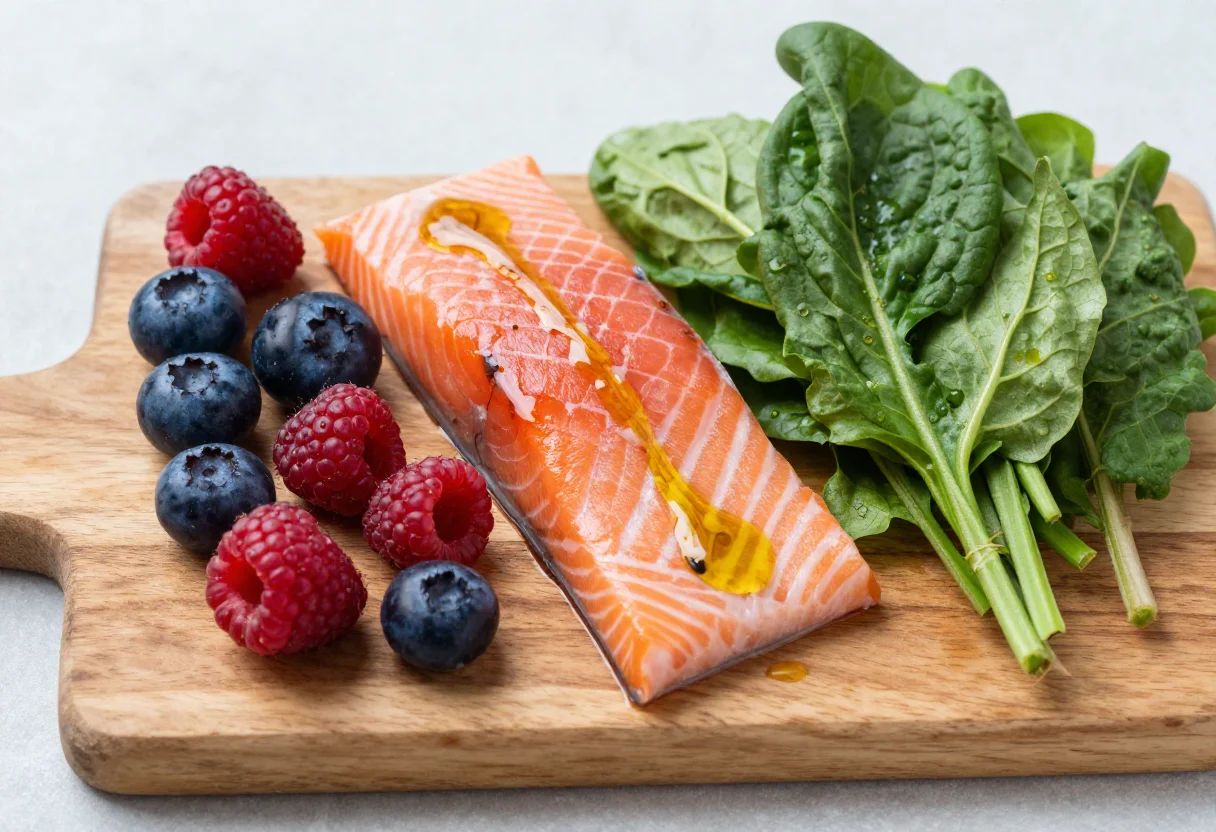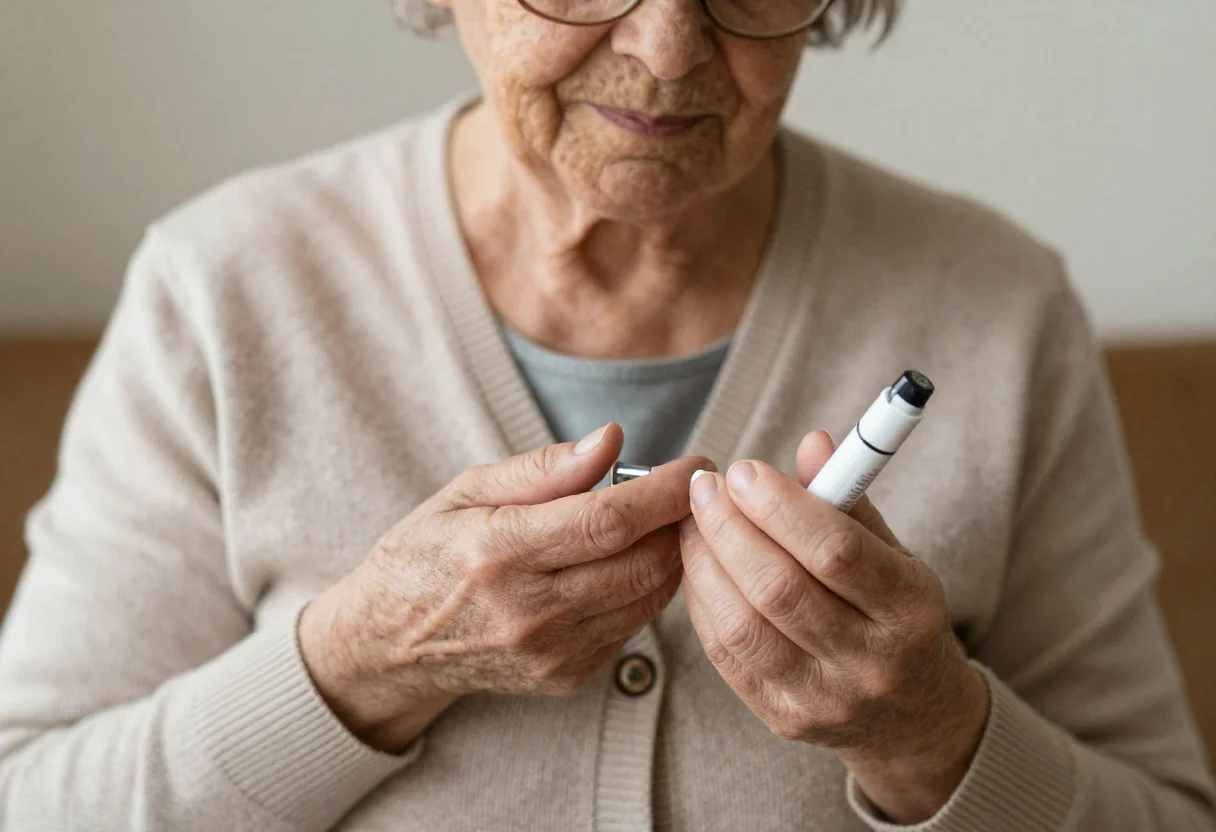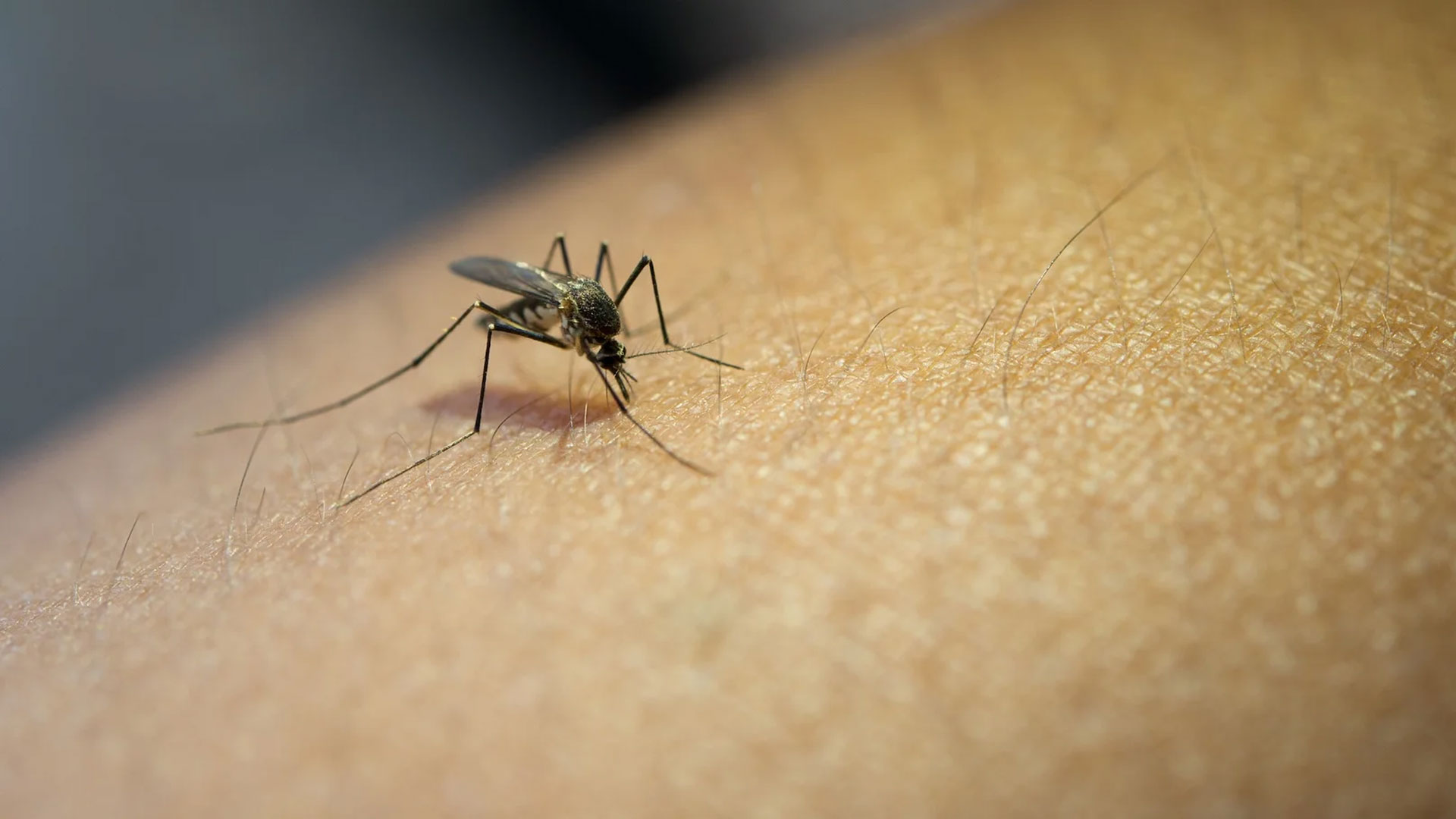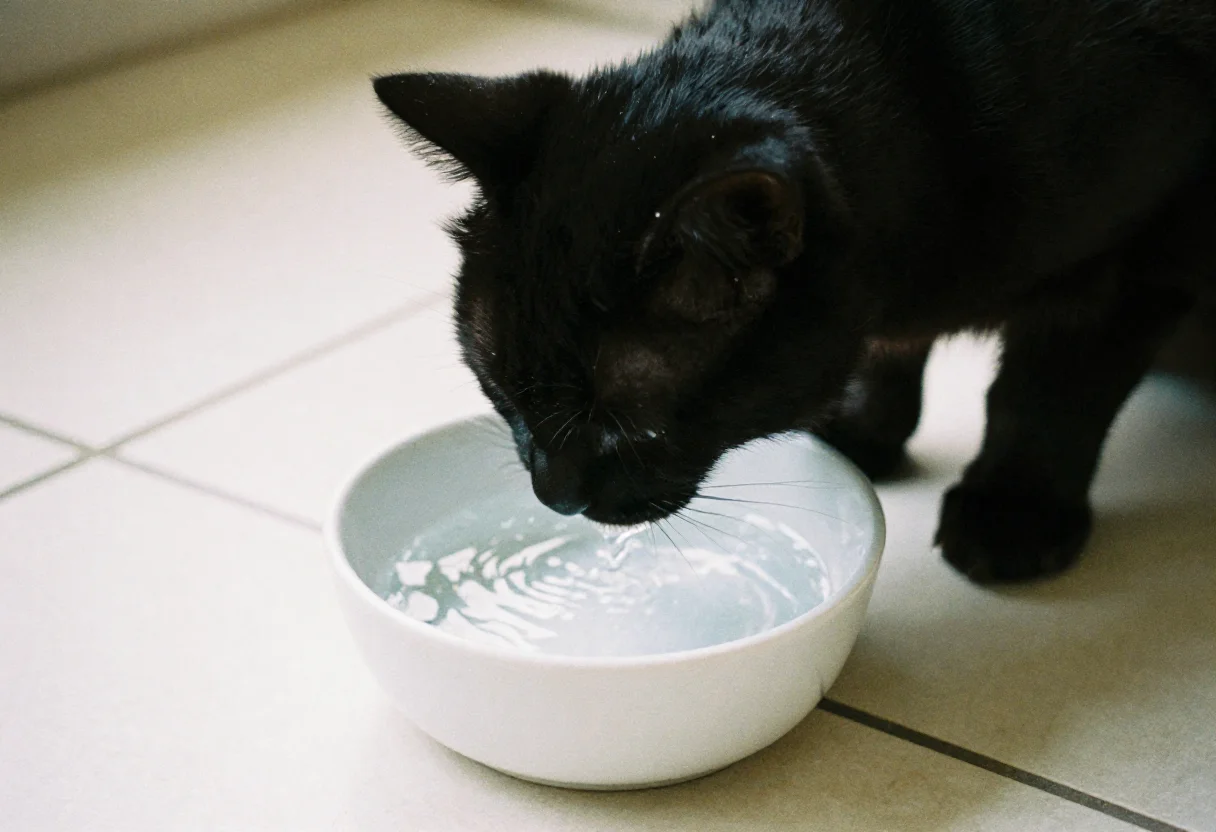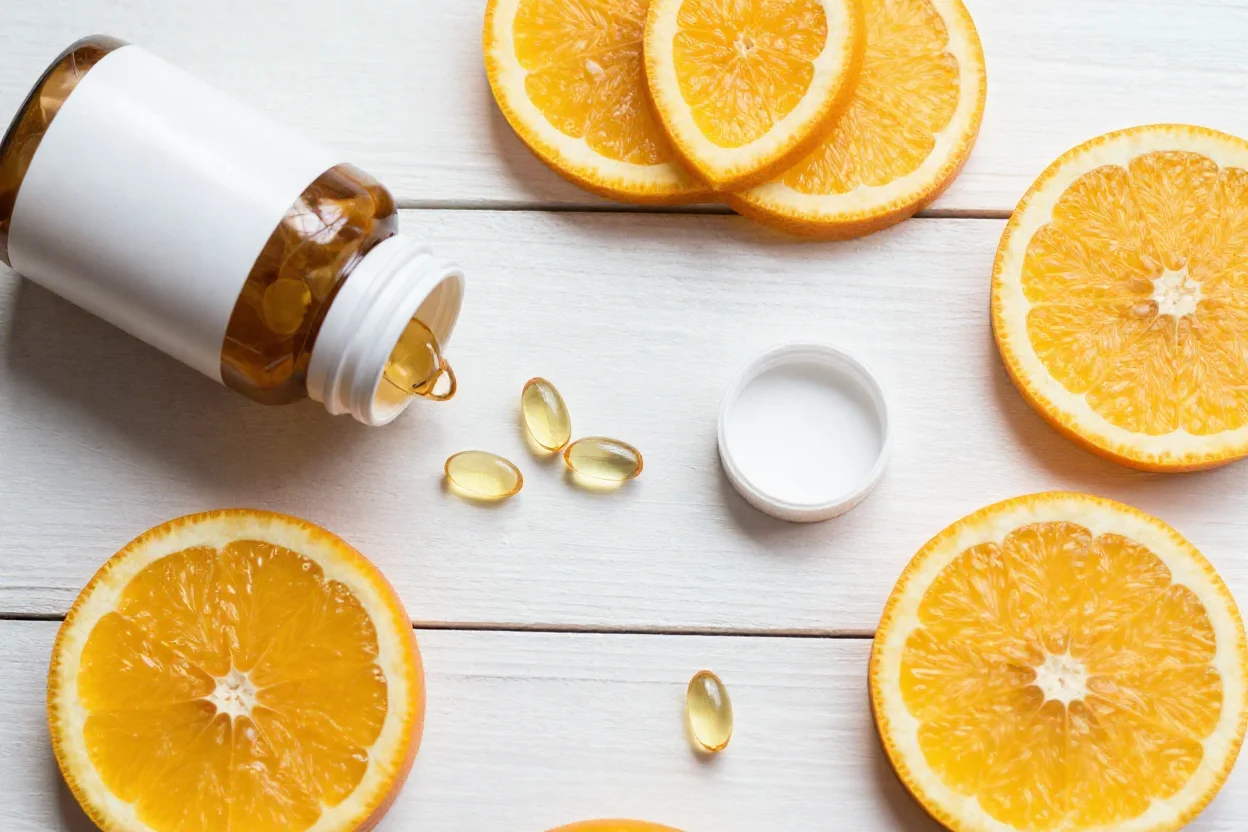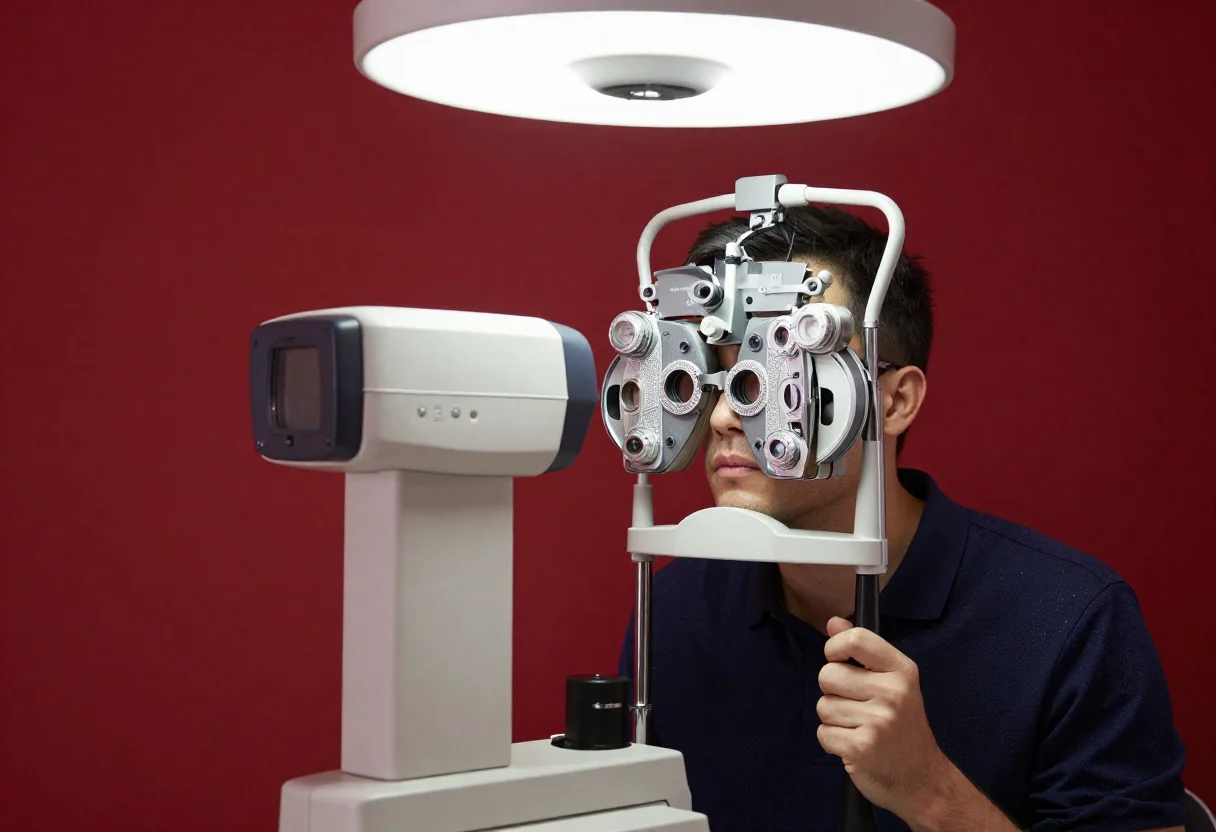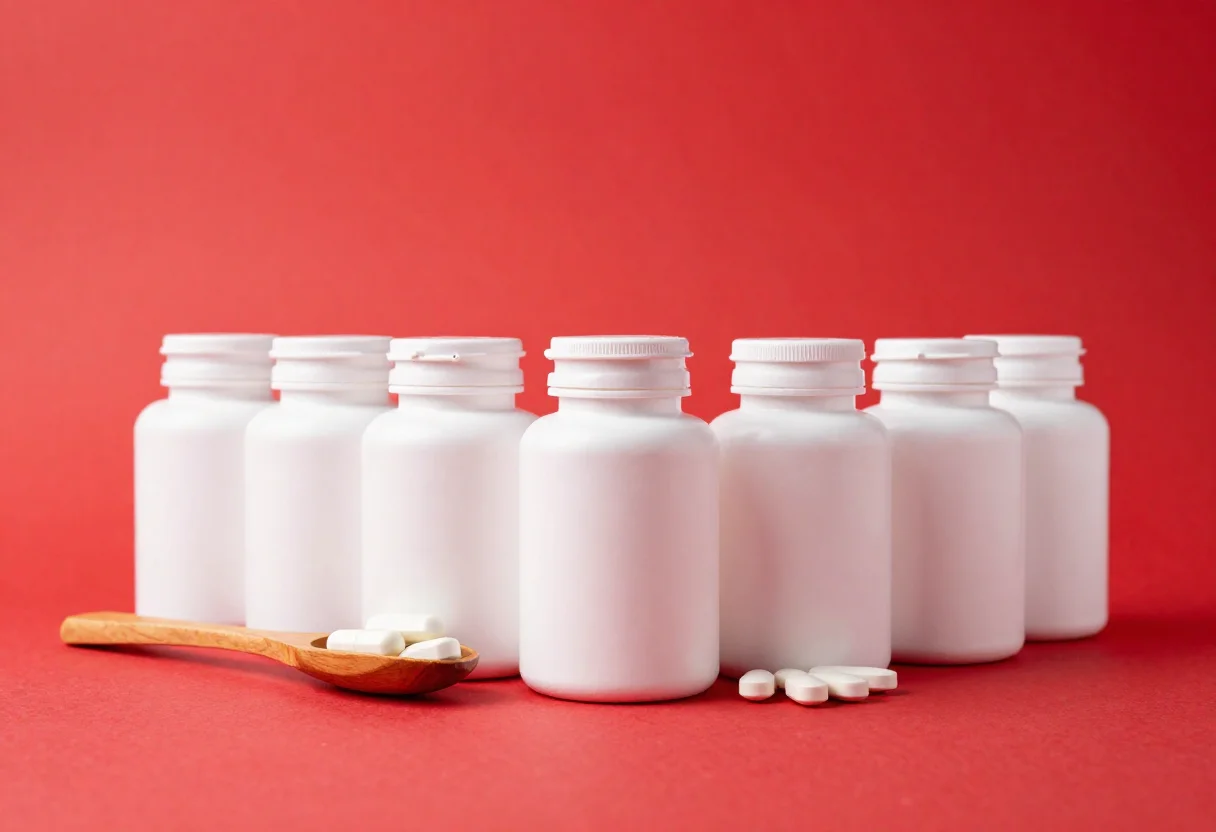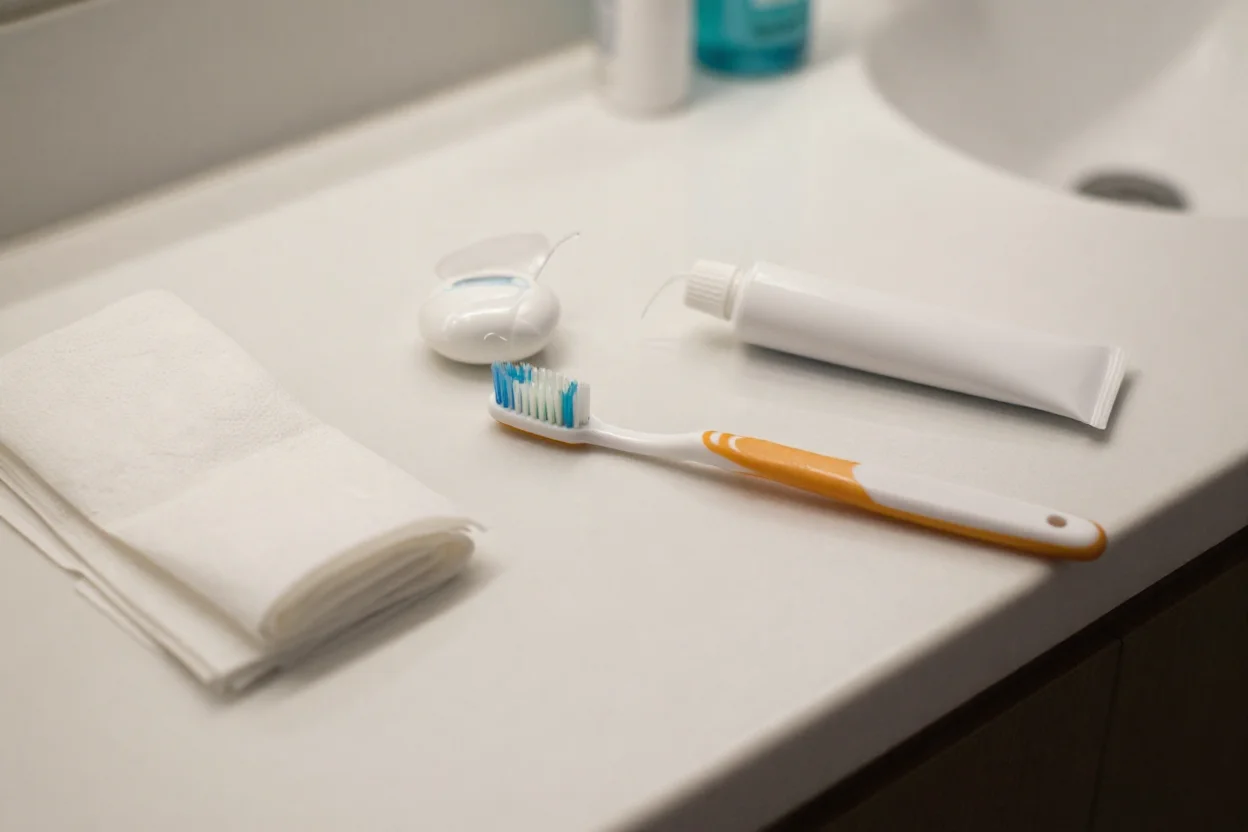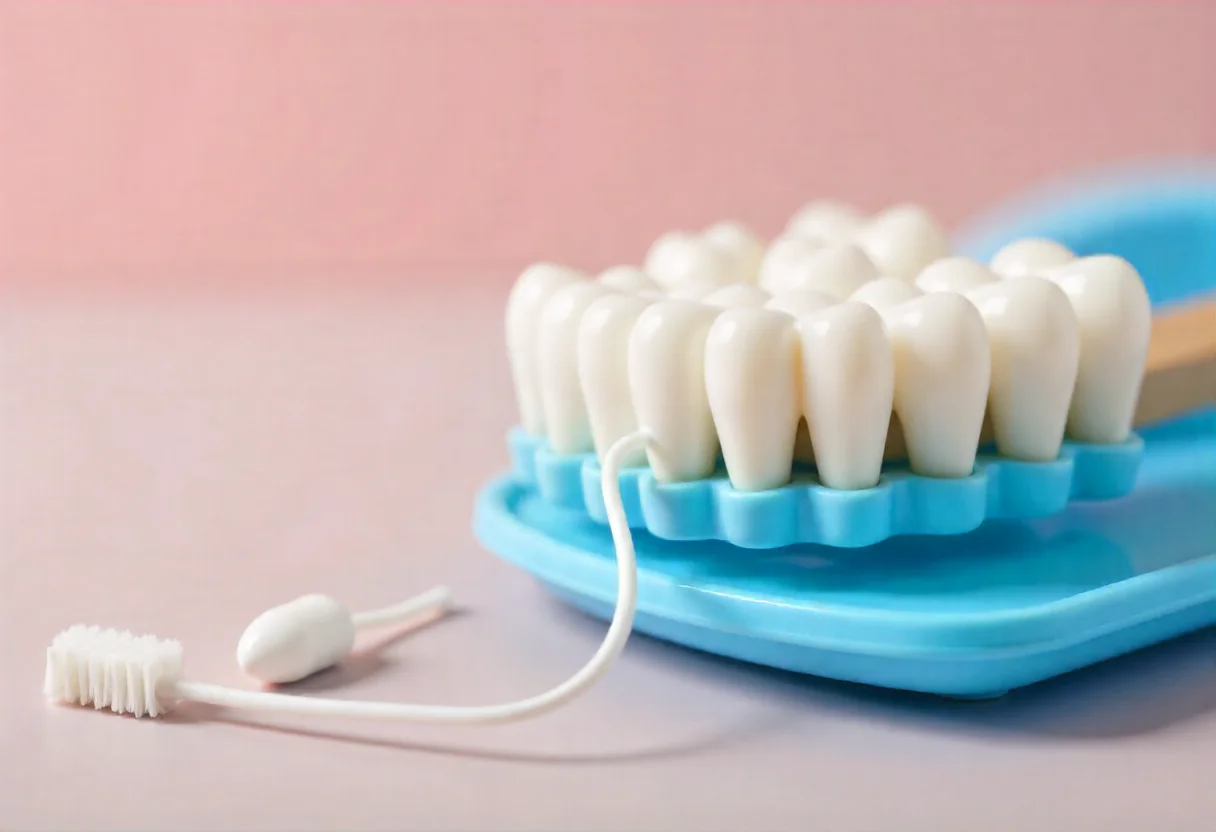
Postbiotics have been linked to several other health benefits, but more research is needed to determine the full extent of their effects:
- They may help reduce the severity of allergic reactions. A study on 34 adults with atopic dermatitis (eczema) found that postbiotic supplementation for 8-12 weeks significantly reduced the severity of allergic reactions.
- They may support weight loss. Studies suggest that postbiotics, such as short-chain fatty acids, can suppress hunger signals and aid in weight loss.
- They may reduce the risk of heart disease. Animal studies have shown that butyrate can help lower blood pressure and suppress genes involved in cholesterol production.
- They may help manage blood sugar levels. Studies have shown that butyrate may help regulate blood sugar levels.
- They may possess anti-tumor properties. Some animal studies suggest that postbiotics may help inhibit the growth and spread of cancer cells, including those from colon and stomach cancers.
1. Toni Golen, Hope Ricciotti. What are postbiotics? Harvard Health Publishing.
https://www.health.harvard.edu/nutrition/what-are-postbiotics
2. Logan Smith. What are postbiotics? WebMD.
https://www.webmd.com/digestive-disorders/features/what-are-postbiotics
3. Lactiplantibacillus plantarum - uses, side effects, and more. WebMD.
https://www.webmd.com/vitamins/ai/ingredientmono-1672/lactiplantibacillus-plantarum
4. Cheryl Whitten. What to know about Lactobacillus rhamnosus (LGG) probiotic. WebMD.
https://www.webmd.com/digestive-disorders/what-to-know-about-lgg-probiotic
5. Ryan Raman. Lactobacillus rhamnosus: A probiotic with powerful benefits. Nutrition, Healthline.
https://www.healthline.com/nutrition/lactobacillus-rhamnosus
6. Kathy W. Warwick. What are postbiotics? A comprehensive overview. Nutrition, Healthline.
https://www.healthline.com/nutrition/postbiotics
7. Katy Wong. The benefits and uses of Lactobacillus plantarum. Dietary supplements, Supplements.
https://www.verywellhealth.com/lactobacillus-plantarum-benefits-uses-side-effects-4152035
8. Biljana Novkovic. Health benefits of Lactobacillus plantarum (L. plantarum).
https://supplements.selfdecode.com/blog/l-plantarum/
9. Y. Kotani, S. Shinkai, H. Okamatsu, M. Toba, K. Ogawa, H. Yoshida, T. Fukaya, Y. Fujiwara, P.H. Chaves, K. Kakumoto, N. Kohda, Oral intake of Lactobacillus pentosus strain b240 accelerates salivary immunoglobulin A secretion in the elderly: A randomized, placebo-controlled, double-blind trial, Immun Ageing 7 (2010) 11.
10. S. Shinkai, M. Toba, T. Saito, I. Sato, M. Tsubouchi, K. Taira, K. Kakumoto, T. Inamatsu, H. Yoshida, Y. Fujiwara, T. Fukaya, T. Matsumoto, K. Tateda, K. Yamaguchi, N. Kohda, S. Kohno, Immunoprotective effects of oral intake of heat-killed Lactobacillus pentosus strain b240 in elderly adults: a randomised, double-blind, placebo-controlled trial, Br J Nutr 109(10) (2013) 1856-65.
11. K. Karlinger, T. Györke, E. Makö, A. Mester, Z. Tarján, The epidemiology and the pathogenesis of inflammatory bowel disease, Eur J Radiol 35(3) (2000) 154-67.
12. W. Scheppach, S.U. Christl, H.P. Bartram, F. Richter, H. Kasper, Effects of short-chain fatty acids on the inflamed colonic mucosa, Scand J Gastroenterol Suppl 222 (1997) 53-7.
13. P. Vernia, G. Monteleone, G. Grandinetti, G. Villotti, E. Di Giulio, G. Frieri, A. Marcheggiano, F. Pallone, R. Caprilli, A. Torsoli, Combined oral sodium butyrate and mesalazine treatment compared to oral mesalazine alone in ulcerative colitis: randomized, double-blind, placebo-controlled pilot study, Dig Dis Sci 45(5) (2000) 976-81.
14. A. Di Sabatino, R. Morera, R. Ciccocioppo, P. Cazzola, S. Gotti, F.P. Tinozzi, S. Tinozzi, G.R. Corazza, Oral butyrate for mildly to moderately active Crohn's disease, Aliment Pharmacol Ther 22(9) (2005) 789-94.
15. J.P.B. Silva, K.C. Navegantes-Lima, A.L.B. Oliveira, D.V.S. Rodrigues, S.L.F. Gaspar, V.V.S. Monteiro, D.P. Moura, M.C. Monteiro, Protective Mechanisms of Butyrate on Inflammatory Bowel Disease, Curr Pharm Des 24(35) (2018) 4154-4166.
16. J.N. Malagón-Rojas, A. Mantziari, S. Salminen, H. Szajewska, Postbiotics for Preventing and Treating Common Infectious Diseases in Children: A Systematic Review, Nutrients 12(2) (2020).
17. J.Z. Goldenberg, L. Lytvyn, J. Steurich, P. Parkin, S. Mahant, B.C. Johnston, Probiotics for the prevention of pediatric antibiotic-associated diarrhea, Cochrane Database Syst Rev (12) (2015) Cd004827.
18. S.D. Xiao, D.Z. Zhang, H. Lu, S.H. Jiang, H.Y. Liu, G.S. Wang, G.M. Xu, Z.B. Zhang, G.J. Lin, G.L. Wang, Multicenter, randomized, controlled trial of heat-killed Lactobacillus acidophilus LB in patients with chronic diarrhea, Adv Ther 20(5) (2003) 253-60.
19. A.L. Tarrerias, V. Costil, F. Vicari, J.C. Létard, P. Adenis-Lamarre, A. Aisène, D. Batistelli, G. Bonnaud, S. Carpentier, P. Dalbiès, S. Ecuer, J. Etienne, M. Fantoli, B. Grunberg, P. Lannoy, J. Lapuelle, A. Margulies, M. Neumeier, J.M. Rouillon, L. Schmets, M.P. Pingannaud, P. Coulom, F. Kholer, J.M. Canard, The effect of inactivated Lactobacillus LB fermented culture medium on symptom severity: observational investigation in 297 patients with diarrhea-predominant irritable bowel syndrome, Dig Dis 29(6) (2011) 588-91.
20. M. Moroi, S. Uchi, K. Nakamura, S. Sato, N. Shimizu, M. Fujii, T. Kumagai, M. Saito, K. Uchiyama, T. Watanabe, H. Yamaguchi, T. Yamamoto, S. Takeuchi, M. Furue, Beneficial effect of a diet containing heat-killed Lactobacillus paracasei K71 on adult type atopic dermatitis, J Dermatol 38(2) (2011) 131-9.
21. E.S. Chambers, D.J. Morrison, G. Frost, Control of appetite and energy intake by SCFA: what are the potential underlying mechanisms?, Proc Nutr Soc 74(3) (2015) 328-36.
22. C.S. Byrne, E.S. Chambers, D.J. Morrison, G. Frost, The role of short chain fatty acids in appetite regulation and energy homeostasis, Int J Obes (Lond) 39(9) (2015) 1331-8.
23. C. Goswami, Y. Iwasaki, T. Yada, Short-chain fatty acids suppress food intake by activating vagal afferent neurons, J Nutr Biochem 57 (2018) 130-135.
24. A. Alvaro, R. Solà, R. Rosales, J. Ribalta, A. Anguera, L. Masana, J.C. Vallvé, Gene expression analysis of a human enterocyte cell line reveals downregulation of cholesterol biosynthesis in response to short-chain fatty acids, IUBMB Life 60(11) (2008) 757-64.
25. S. Kim, R. Goel, A. Kumar, Y. Qi, G. Lobaton, K. Hosaka, M. Mohammed, E.M. Handberg, E.M. Richards, C.J. Pepine, M.K. Raizada, Imbalance of gut microbiome and intestinal epithelial barrier dysfunction in patients with high blood pressure, Clin Sci (Lond) 132(6) (2018) 701-718.
26. T. Halmos, I. Suba, [Physiological patterns of intestinal microbiota. The role of dysbacteriosis in obesity, insulin resistance, diabetes and metabolic syndrome], Orv Hetil 157(1) (2016) 13-22.
27. H. Tilg, A.R. Moschen, Microbiota and diabetes: an evolving relationship, Gut 63(9) (2014) 1513-21.
28. A.H. Rad, L. Aghebati-Maleki, H.S. Kafil, A. Abbasi, Molecular mechanisms of postbiotics in colorectal cancer prevention and treatment, Crit Rev Food Sci Nutr 61(11) (2021) 1787-1803.
29. A. Homayouni Rad, L. Aghebati Maleki, H. Samadi Kafil, H. Fathi Zavoshti, A. Abbasi, Postbiotics as Promising Tools for Cancer Adjuvant Therapy, Adv Pharm Bull 11(1) (2021) 1-5.
30. F.J. Cousin, S. Jouan-Lanhouet, M.T. Dimanche-Boitrel, L. Corcos, G. Jan, Milk fermented by Propionibacterium freudenreichii induces apoptosis of HGT-1 human gastric cancer cells, PLoS One 7(3) (2012) e31892.
31. C.A.M. Wegh, S.Y. Geerlings, J. Knol, G. Roeselers, C. Belzer, Postbiotics and Their Potential Applications in Early Life Nutrition and Beyond, Int J Mol Sci 20(19) (2019).
32. V.F.S. Kilic, A. Didem, B. Gulden, Lactobacillus casei’nin Sağlık Üzerine Etkileri ve Gıda Endüstrisinde Kullanımı, 37 (2023).
33. H. Yadav, S. Jain, P.R. Sinha, Oral administration of dahi containing probiotic Lactobacillus acidophilus and Lactobacillus casei delayed the progression of streptozotocin-induced diabetes in rats, J Dairy Res 75(2) (2008) 189-95.
34. S.-S. Chiang, T.-M. Pan, Beneficial effects of Lactobacillus paracasei subsp. paracasei NTU 101 and its fermented products, Applied Microbiology and Biotechnology 93(3) (2012) 903-916.
35. M. Urbańska, D. Gieruszczak-Białek, H. Szajewska, Systematic review with meta-analysis: Lactobacillus reuteri DSM 17938 for diarrhoeal diseases in children, Aliment Pharmacol Ther 43(10) (2016) 1025-34.
36. G. Athalye-Jape, S. Rao, S. Patole, Lactobacillus reuteri DSM 17938 as a Probiotic for Preterm Neonates: A Strain-Specific Systematic Review, JPEN J Parenter Enteral Nutr 40(6) (2016) 783-94.
37. T. Harb, M. Matsuyama, M. David, R.J. Hill, Infant Colic-What works: A Systematic Review of Interventions for Breast-fed Infants, J Pediatr Gastroenterol Nutr 62(5) (2016) 668-86.
38. K. Imase, A. Tanaka, K. Tokunaga, H. Sugano, H. Ishida, S. Takahashi, Lactobacillus reuteri tablets suppress Helicobacter pylori infection--a double-blind randomised placebo-controlled cross-over clinical study, Kansenshogaku Zasshi 81(4) (2007) 387-93.
